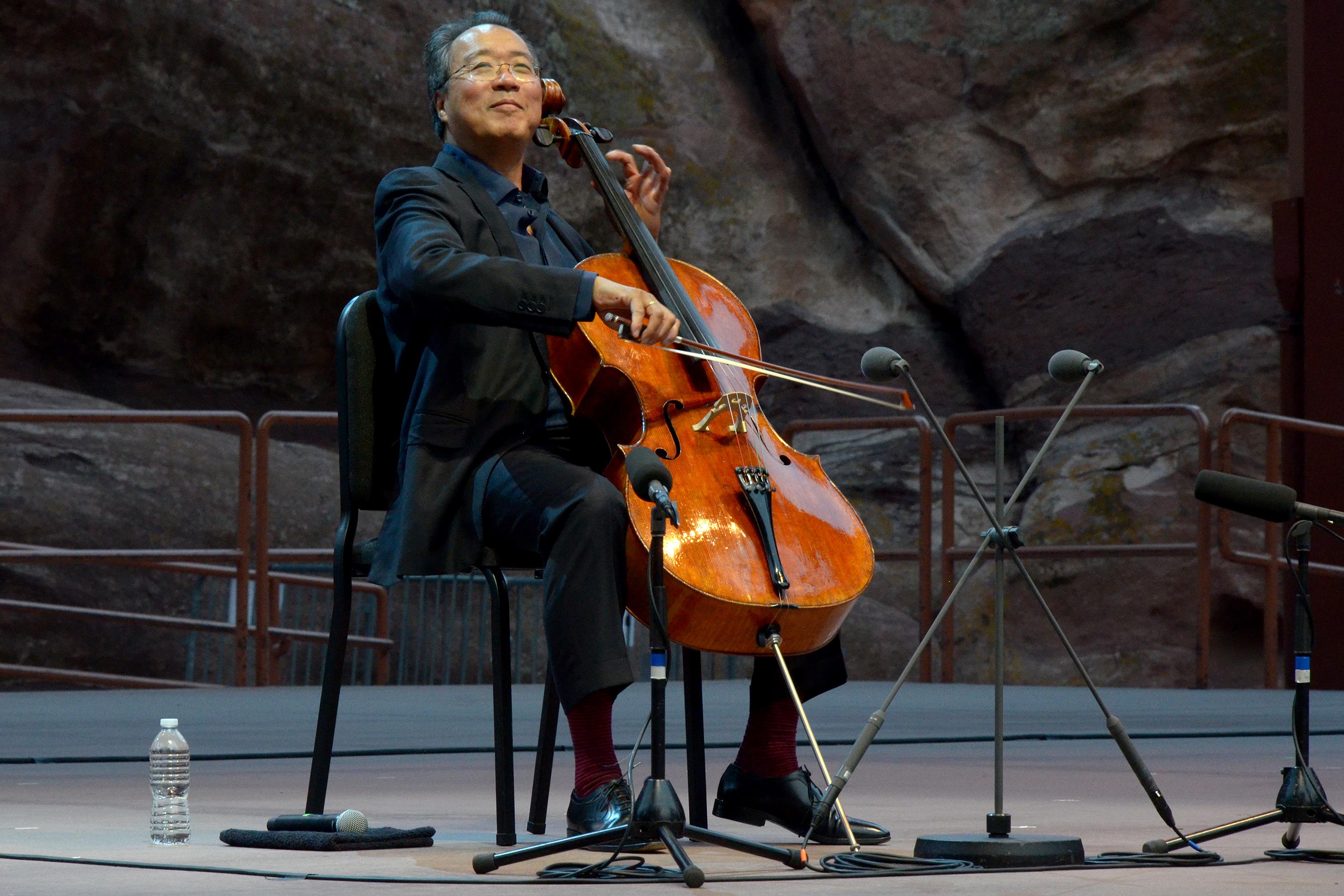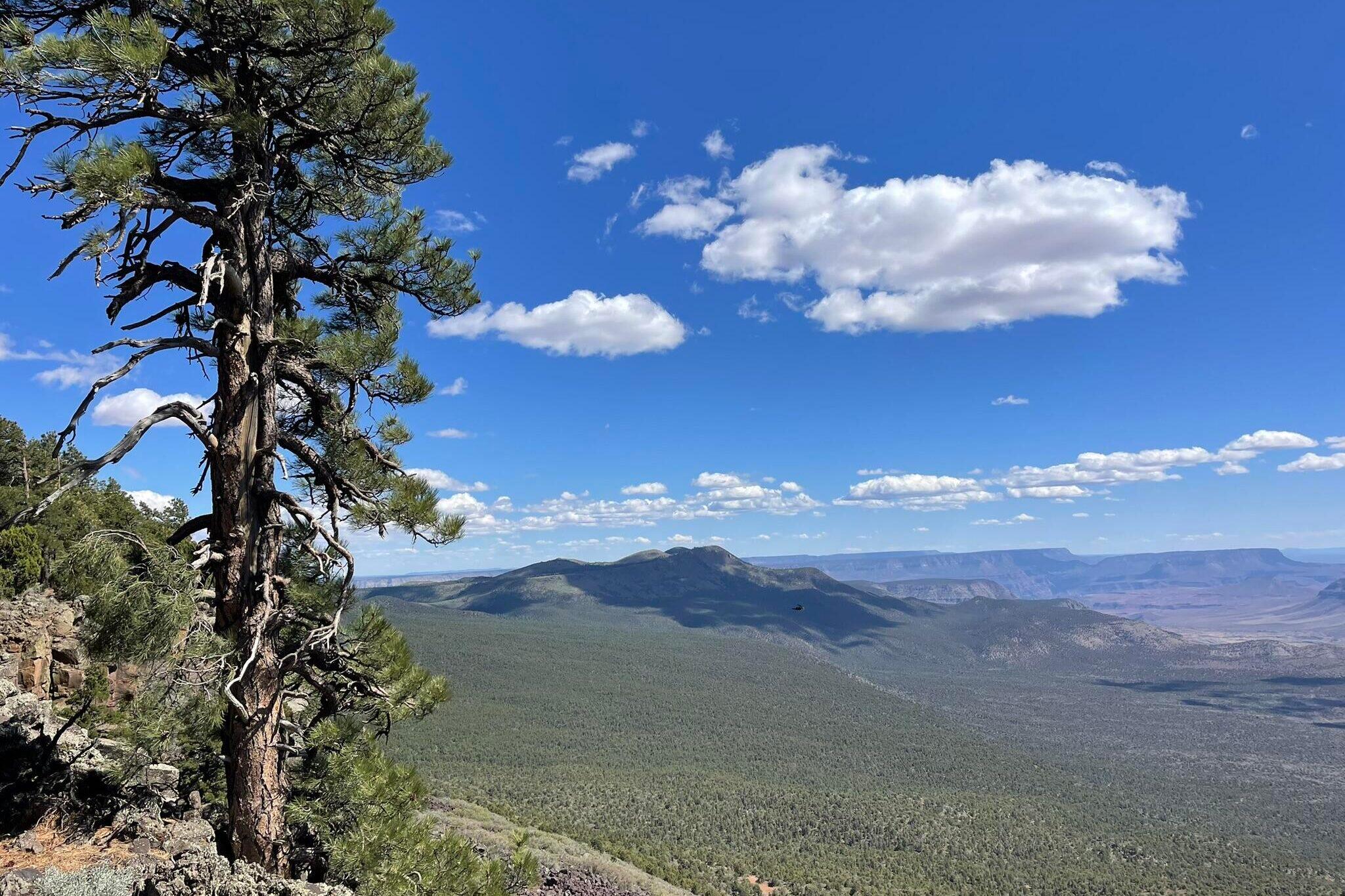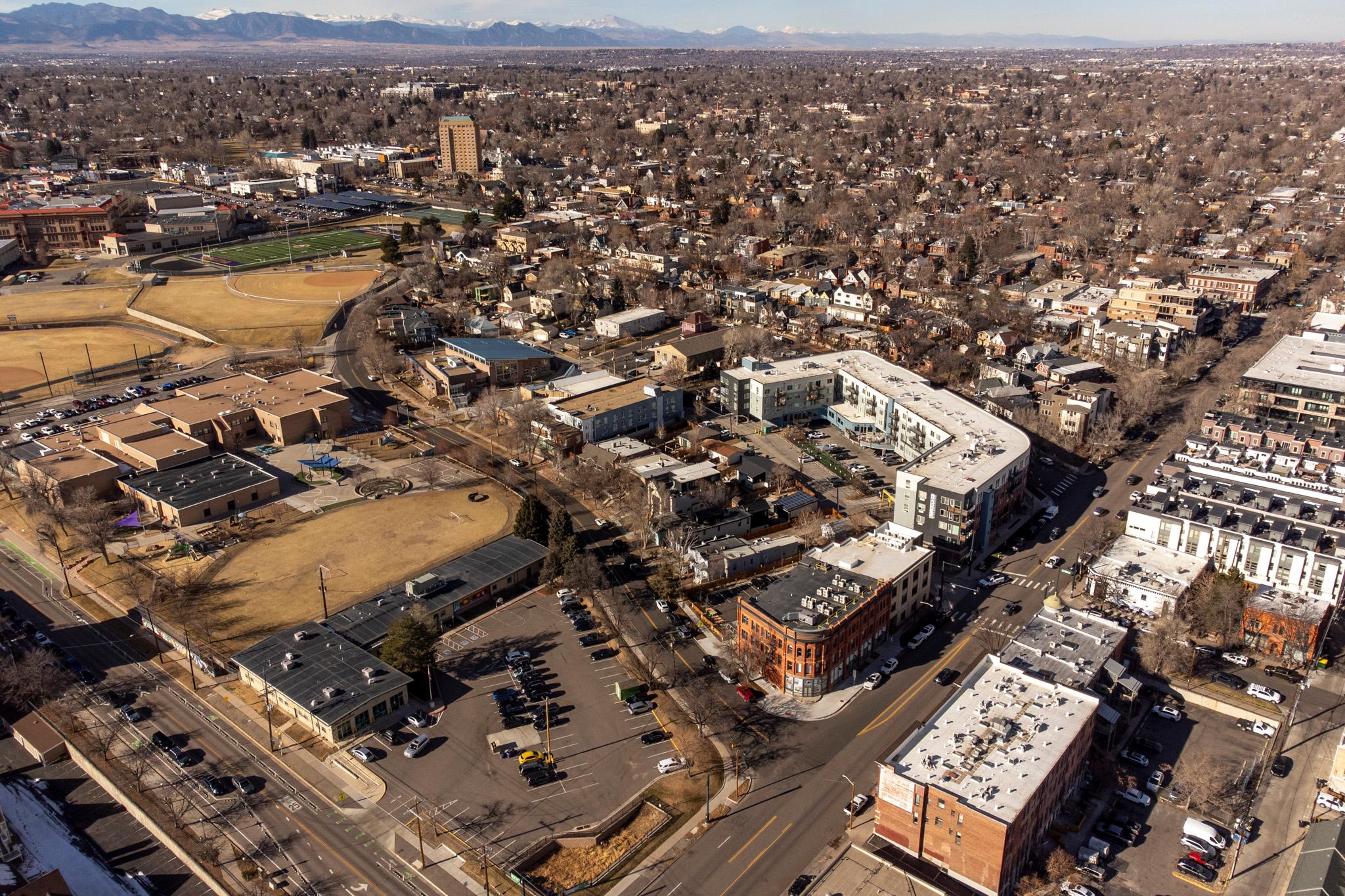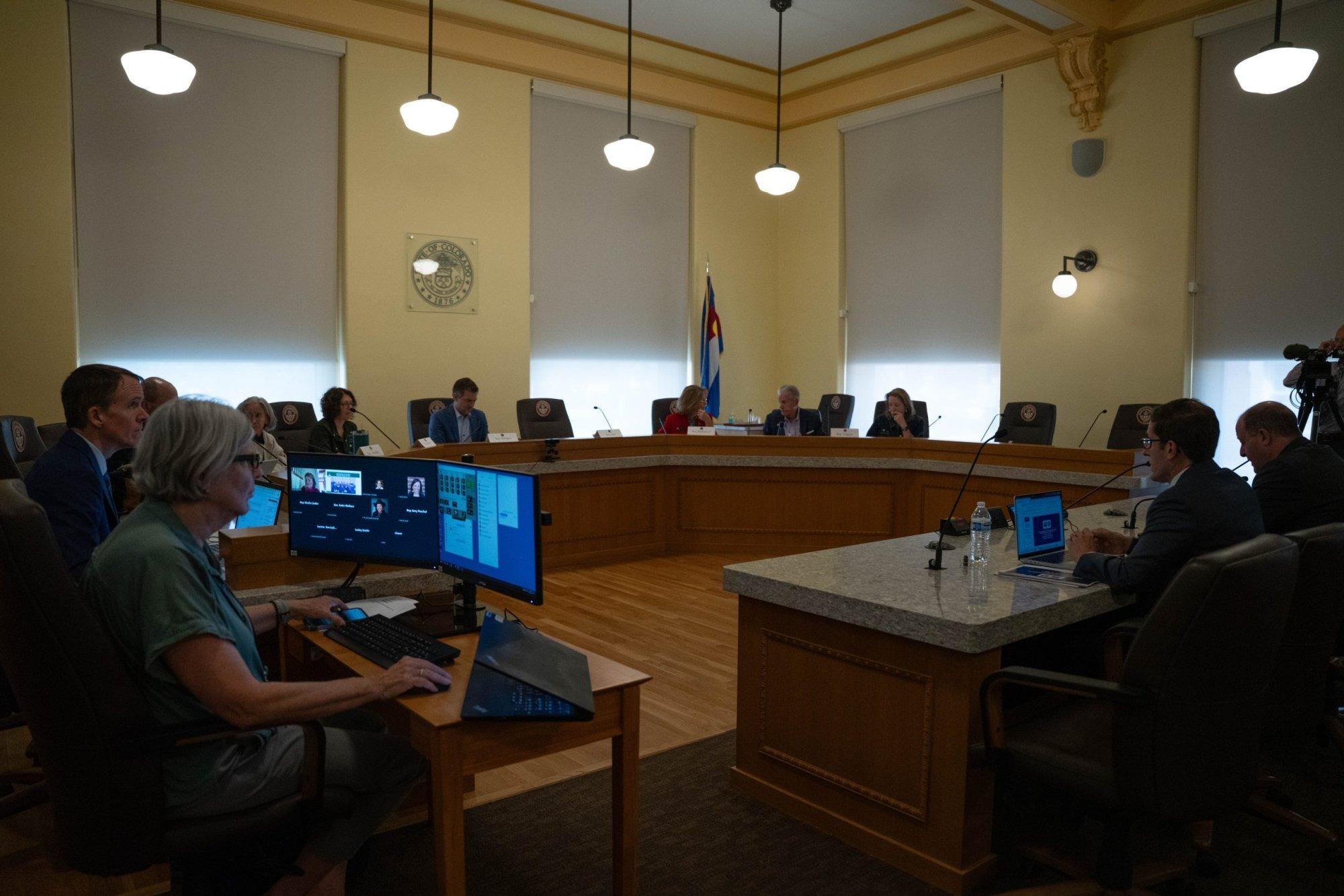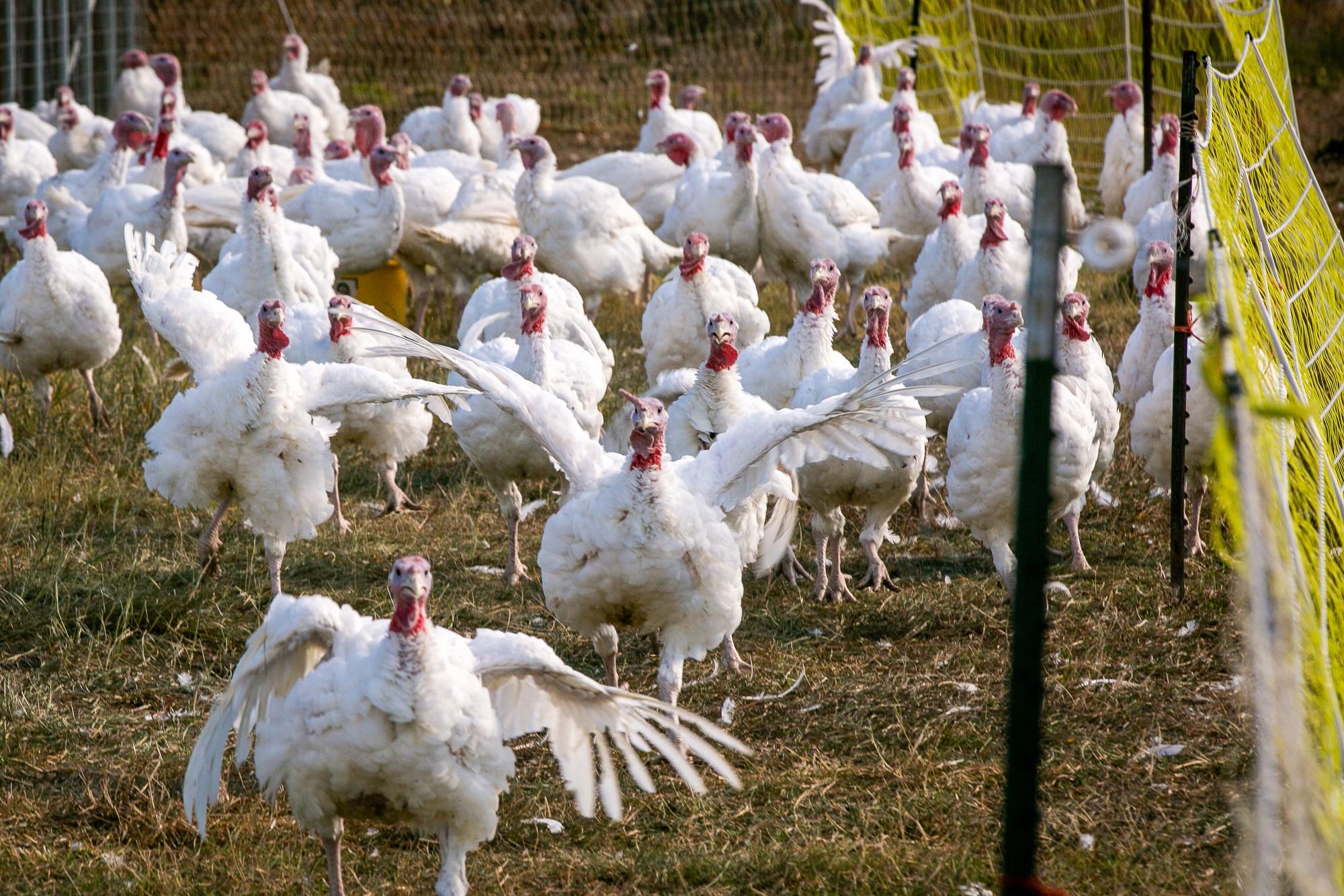
No matter where you are in the U.S., chances are your Thanksgiving dinner will center around a turkey. But few of us ever think about what it takes for that bird to go from feathery creature to the roasted, fried or smoked showpiece on the dinner table.
Ahead of the holiday season, CPR News got curious about this little nuance. So, we decided to visit one of the few places in Colorado still raising turkeys the old-fashioned way: Jodar Farms in Fort Collins.
On a cool November morning, farm owner Aaron Rice strolls through acres of golden grass to an open-air enclosure where about 150 turkeys wobble and gobble. They have surprisingly white feathers, contrasted by big red heads. Rice has been raising poultry and pigs here for nearly 15 years. The small, family-run operation serves their community through a CSA membership program.
“We raise the broad-breasted whites,” said Rice. “They're your typical Thanksgiving turkey, nice big plump birds.”
If you’re thrown off by the color, you’re not alone. But Rice says the broad-breasted whites have a better-shaped carcass than the heritage brown you might associate with the holiday — which means a better-looking bird for mom’s photo op.
That’s important because when it comes to turkey, Americans tend to eat with their eyes first.
“People have expectations of what they look like on the table,” he said.
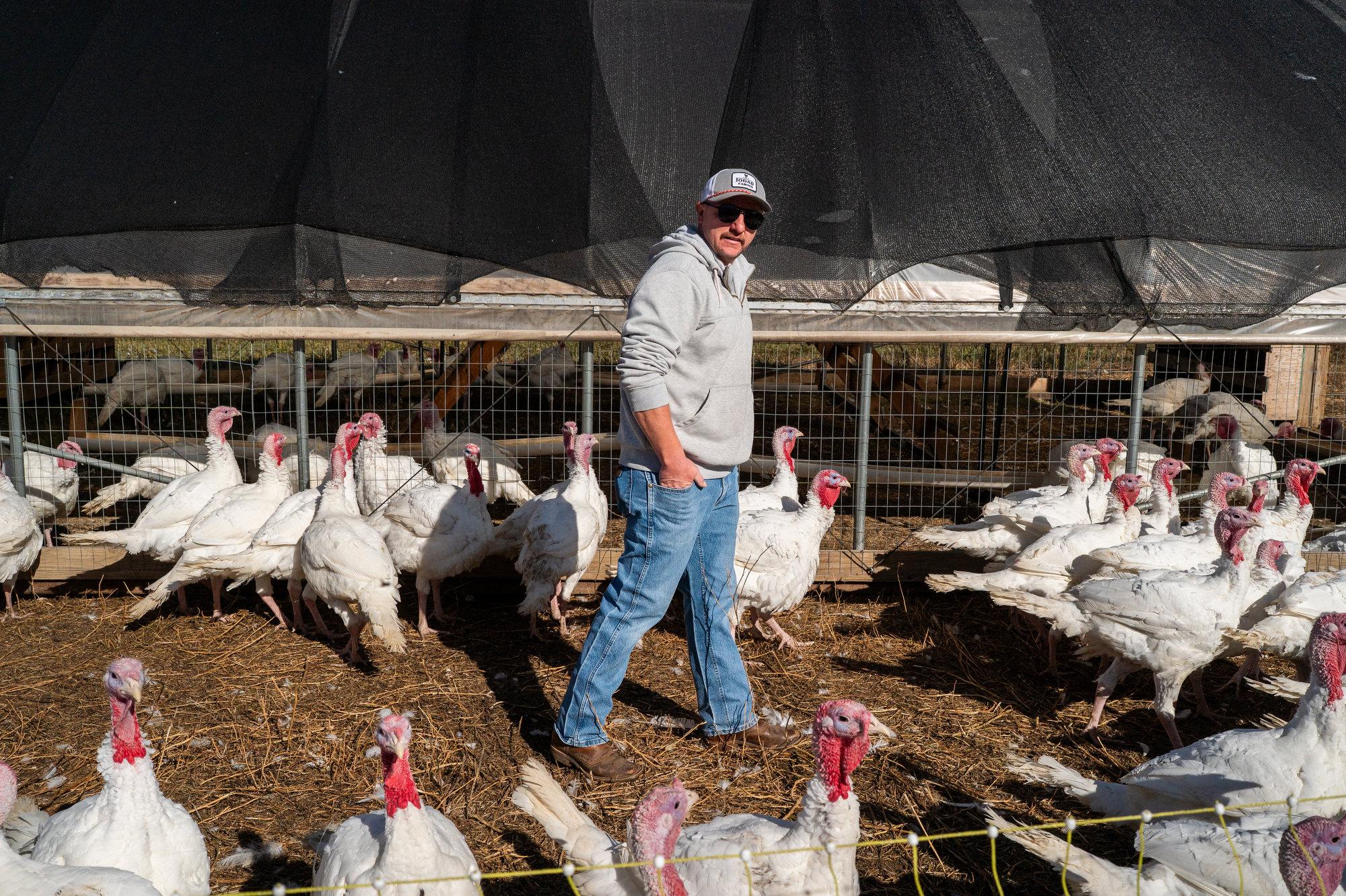
And these aren’t the industrial birds you’ve heard about being raised in long metal barns. Rice’s turkeys live outdoors, rotated through open pastures where they forage for bugs, graze on grass, and occasionally get treated to local brewer’s grain.
“Most turkey farms raise indoors,” Rice said. “Ours are out on grass. They're not just in dirt lots. These are grasshopper (eating) machines out here.”
Production manager Maggie Gilman spends every morning with the flock, feeding them, moving their fences, and opening the coop doors with the sunrise. She says each turkey has its own personality.
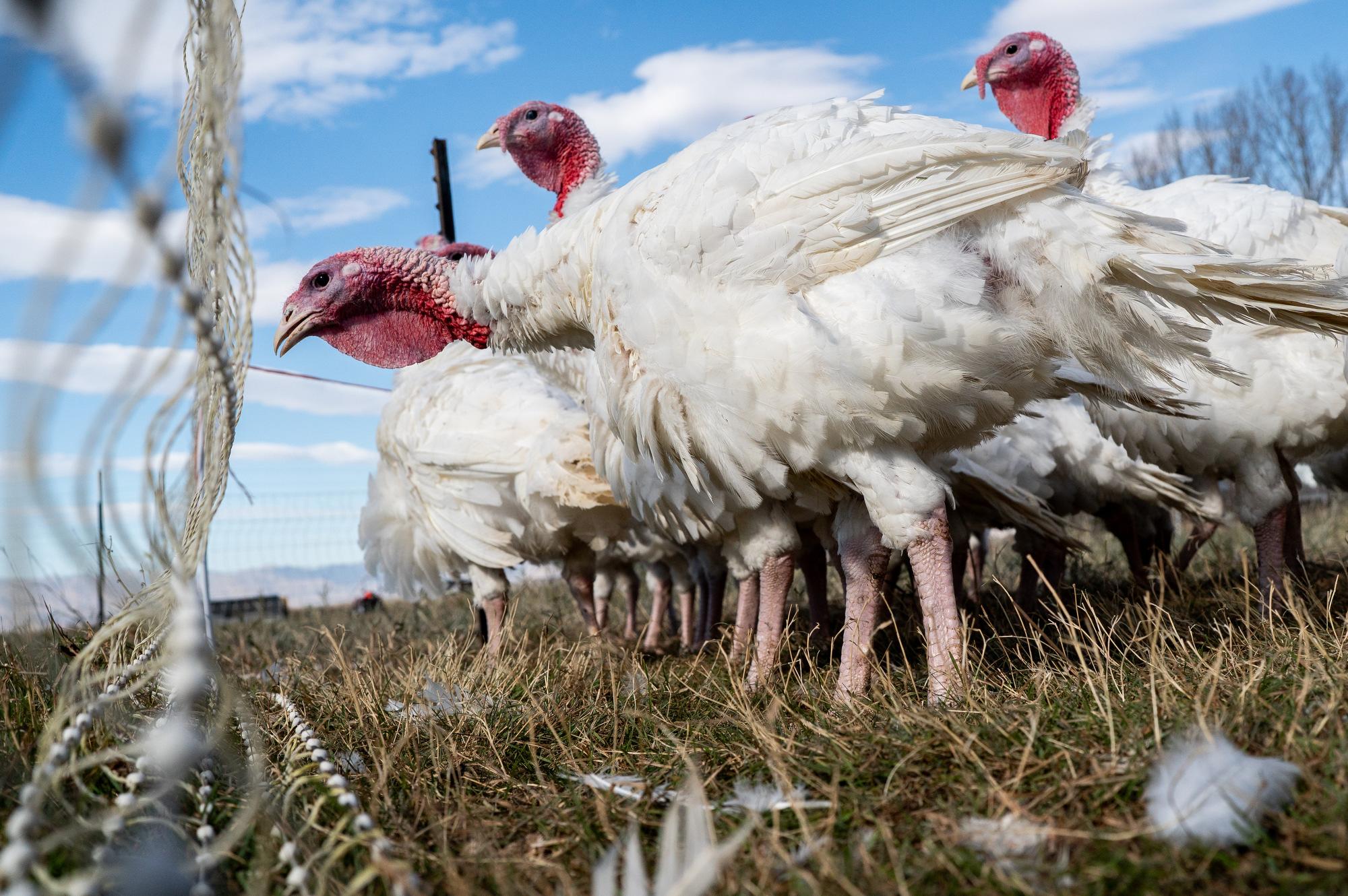
“They’re kind of like awkward ostriches,” she laughed. “They’re always talking and following each other around. They're just the most quirky characters.”
They arrived by mail at Jodar Farms back in July, at just a day old. By late November, they’re full-grown, weighing about 20 to 25 pounds each.
“Compared to chickens, it's slow; compared to pigs, it's really fast. Compare that to beef, and it's really, really fast,” Rice said.
If turkeys grow so fast, why aren’t there more turkey farms in Colorado?
When the Butterball plant in Longmont closed in 2011, Colorado lost its last large-scale processing facility. That means small producers like Rice have to handle everything themselves, from raising the birds to humanely harvesting and packaging them before the holiday.
“The turkey industry in Colorado is pretty few and far between,” Rice said. “A lot of that has to do with slaughter. There's really no location in the state to have your turkeys processed.”
This year, most of Jodar’s flock will end up on local Thanksgiving tablescapes. About a third will be packaged into parts for the farm’s CSA program, and two — Rice told us with a grin — were pardoned by Governor Jared Polis.
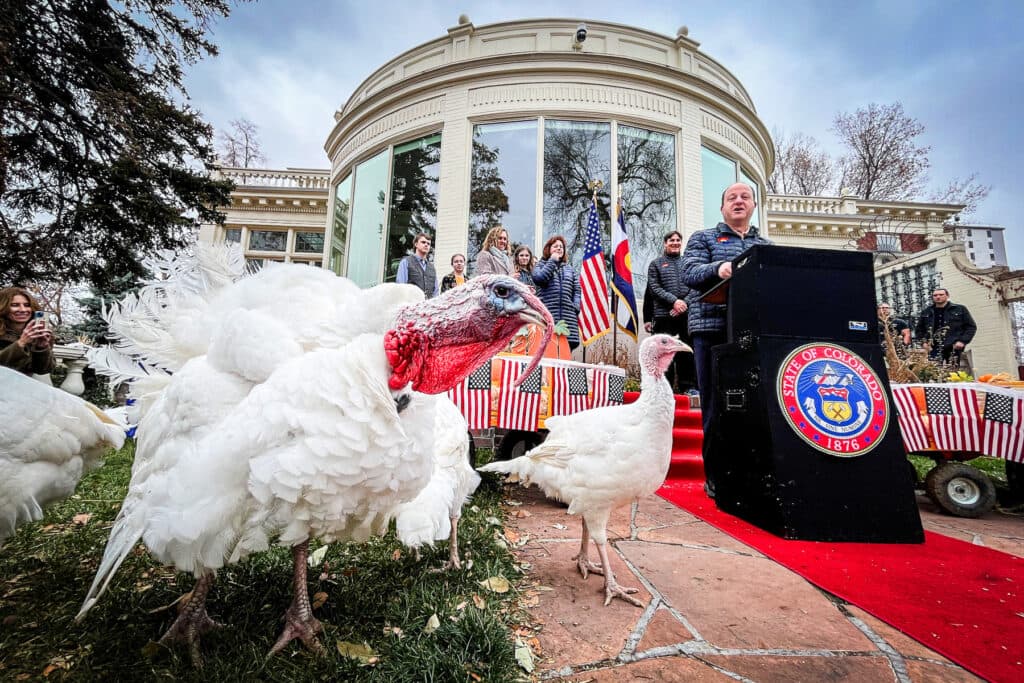
The turkeys chosen for the pardon this year were named Butch Cassidy and The Sundance Kid by the governor’s team. Gilman and Rice chose them for their demeanor and their plumage. “They do have to spend the night in the governor’s mansion after all,” said Rice. “He’ll spare their lives, and they'll go live on a sanctuary farm.”
Raising food this way is slower, smaller and more expensive, but Rice says it’s worth it.
“Buying a Butterball turkey at King Soopers for 10 bucks, that's not sustainable. Nobody wins in that situation,” he said. “Our turkeys cost more, but it's one meal a year that we feel like is genuinely superior when you go this route.”
Anecdotally, Jodar Farms customers have told Rice they can taste the difference. And Gilman agrees, saying small farms help people reconnect to what’s on their plates.
“You’re supporting your fellow community members. Plus, our customers can come interact with the animals, which really makes what they're eating a little more real,” she said.
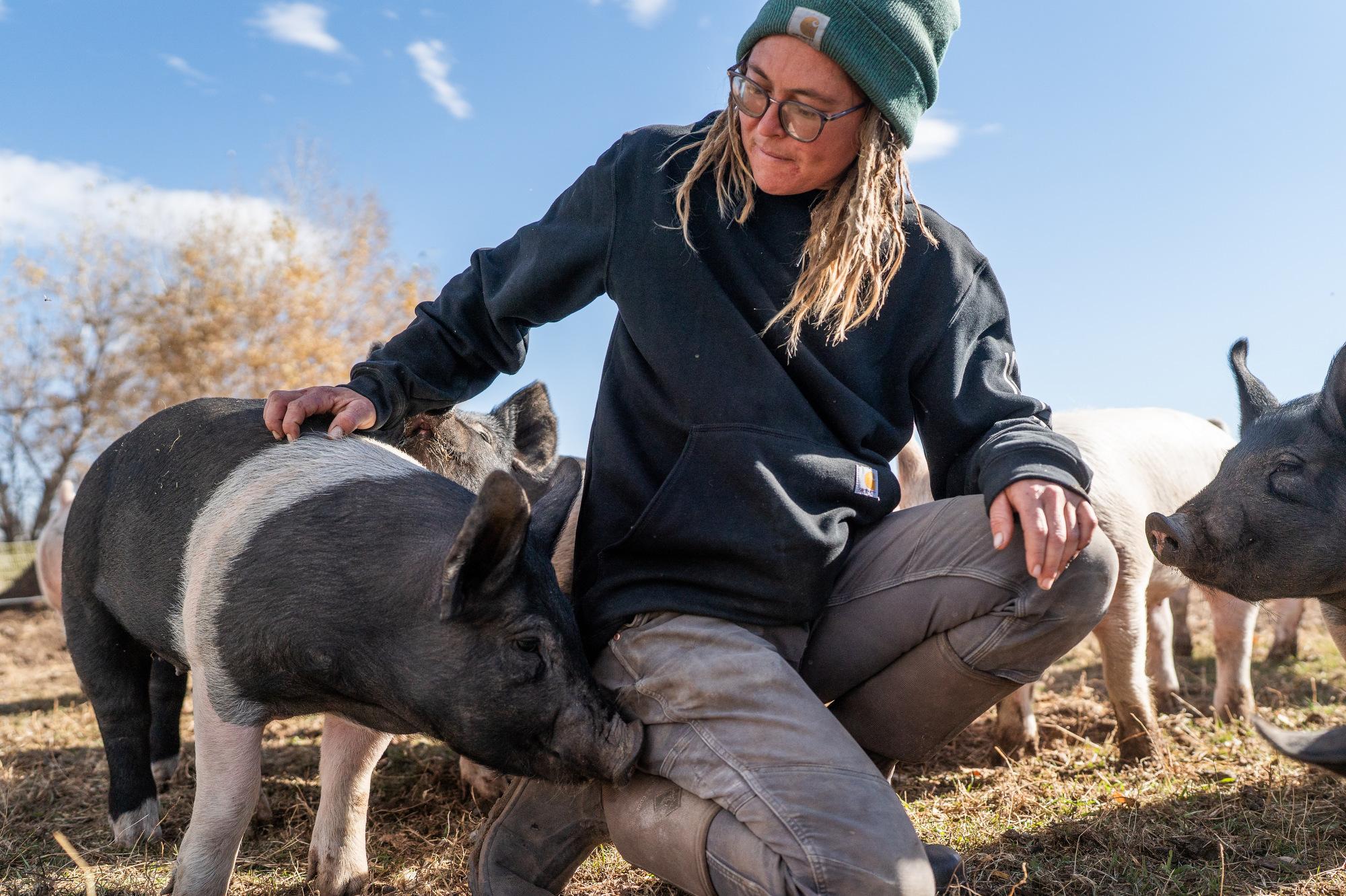
For Rice, that connection between people, animals and the land is what keeps him going.
“I've watched kids grow up eating our food,” he said. “It’s really cool to see families who genuinely appreciate the hard work you’re doing and tell you every single time, ‘Thank you.’ Those are the moments that help you through the tough periods.”
As Thanksgiving arrives, Rice hopes Coloradans take a moment to think about where their feast came from and the few small farms still keeping the state’s turkey tradition alive.

